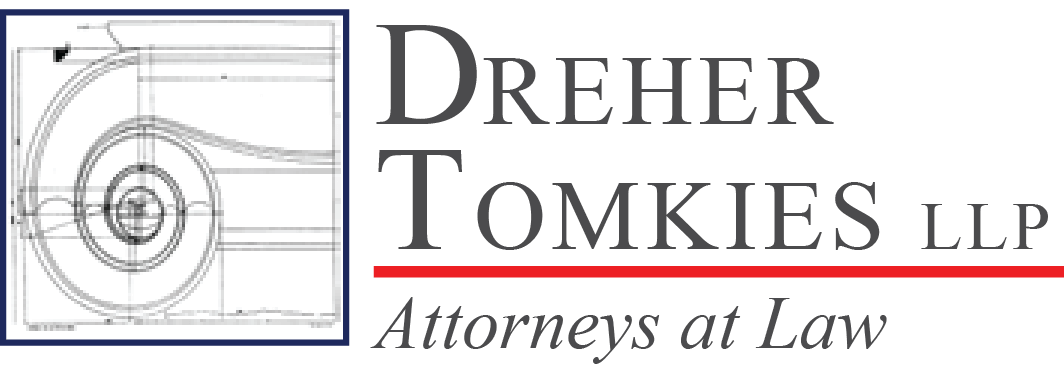On October 24, 2023, the Supreme Court of Indiana ruled on a case involving a consumer’s acceptance of a credit union’s (“CU”) arbitration addendum. Land v. IU Credit Union, ___ N.E.3d ___, 2023 WL 6985790 (Ind., Oct. 24, 2023). The case focused on two key facts: (i) whether notice to the consumer of an arbitration addendum was reasonable and valid and (ii) whether the consumer’s silence and inaction amounted to assent to the arbitration addendum. The subject of the lawsuit is a proposed 2019 addendum to an agreement between a CU and its consumer. The addendum was provided to the consumer via email and U.S. postal mail, proposing the following amendments: (i) that either party may require arbitration for disputes regardless of the other party’s consent and (ii) that the consumer is prohibited from initiating or joining in a class action lawsuit. Read More
Month: October 2023
FTC Approves Amendment to Safeguards Rule
The Federal Trade Commission (“FTC”) has announced new amendments to the Safeguards Rule to go into effect 180 days after publication in the Federal Register. Over the last few years we have reported on amendments to the Safeguards Rule. See, e.g. our Alerts dated Nov. 17, 2021 and Oct. 5, 2022. Notably in 2021 the FTC amended the Safeguards Rule to, among other things, expand the definition of “financial institution” to include entities engaged in activities the Federal Reserve Board determines to be incidental to financial activities, which adds “finders”—companies that bring together buyers and sellers of a product or service—within the scope of the Rule. The 2021 amendments also added provisions to provide more guidance on how to develop and implement aspects of an information security program, such as access controls, authentication and encryption. Most of the 2021 amendments went into effect in December 2022. Read More
SUPREME COURT TO HEAR NATIONAL BANK ACT PREEMPTION CASE
The United States Supreme Court has agreed to hear a case involving the National Bank Act and the preemption of state laws that require lenders and holders to pay interest on residential mortgage escrow accounts, known as “escrow-interest statutes.” Federal circuit courts are currently split on whether these laws are preempted by the National Bank Act. Thirteen states have escrow-interest statutes, which generally require lenders engaged in the business of making residential mortgage loans to pay interest on escrow accounts that are required for the payment of a mortgage borrower’s property taxes and insurance premiums. Read More
INJUNCTION ON CFPB SMALL BUSINESS DATA LENDING RULE EXPANDED
On Wednesday, the U.S. District Court for the Southern District of Texas expanded the injunction it previously placed on the CFPB’s Section 1071 rule (“Rule”) so that it covers all banks, credit unions, fintechs and other lenders subject to the CFPB’s authority nationwide pending a decision in the Supreme Court case challenging the constitutionality of the CFPB’s funding mechanism. The original injunction, which was granted in July, applied only to members of the American Bankers Association, the Texas Bankers Association and Rio Bank of McAllen, Texas. Read More
CA ENACTS SMALL BUSINESS COMMERCIAL FINANCING TRANSACTIONS FEE RESTRICTIONS
On October 13, 2024 the California Governor signed A.B. 666, a bill prohibiting a broker or provider of commercial financing from charging certain fees in connection with a commercial financing transaction with a small business or small business owner. The prohibited fees are as follows:
- A fee for accepting or processing a payment required by the terms of the commercial financing contract as an ACH transfer debit;
HYBRID FDCPA/FRCA CODE DISPUTE LAWSUITS REQUIRE COMPANIES TO STAY A STEP AHEAD
A recent trend in consumer lawsuits has furnishers of credit reports under fire for Metro 2 code usage. The trend sees a consumer with a creative consumer advocate start by disputing a debt with a creditor or debt collector; the creditor or debt collector, as the furnisher, will then report an “XB” to the credit reporting agencies to indicate that the consumer has disputed the account information with the furnisher directly. Next, the creditor or debt collector will proceed with an investigation and report a code of “XH” at the conclusion of the investigation. The “XH” indicates that the account was previously in dispute and the furnisher has concluded the investigation. Read More
CFPB AND DOJ ISSUE STATEMENT ON IMMIGRATION STATUS DISCRIMINATION UNDER ECOA
The Consumer Financial Protection Bureau and the U.S. Department of Justice have issued a joint statement to remind financial institutions that the Equal Credit Opportunity Act (“ECOA”) prohibits discrimination based on national origin, race, and other covered characteristics, regardless of the immigration status of the credit applicant. Read More
CFPB RELEASES ADVISORY OPINION AND SUPERVISORY HIGHLIGHTS IN EFFORT TO PROTECT CONSUMERS FROM “JUNK FEES” ON SAME DAY FTC ISSUES NOTICE OF PROPOSED RULEMAKING REGARDING “JUNK FEES”
The Consumer Financial Protection Bureau (CFPB) released additional guidance in an Advisory Opinion regarding Section 1034(c) of the Consumer Financial Protection Act (CFPA) on October 11, 2023. Read More

